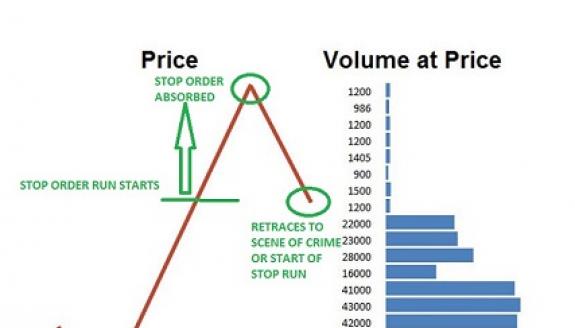
Nathan Strik is the co-manager for the reit fiduciary fund. He has helped the fund raise Rs 1125 crore. Funds are expected to redeem redemption proceeds in cash. Typically, the funds satisfy redemption requests by using available cash or by selling portfolio securities. They can borrow from another fund or financial institution using reverse repurchase arrangements in certain situations. These transactions may be possible during normal market conditions. But, these transactions could have unintended results such as limiting cash available for the Funds to borrow.
reit fidelity raises Rs 1,125 crore
Mindspace Business Parks REIT, a real-estate investment trust, is supported by Blackstone and K Raheja Corp. The company intends to raise Rs 4,500crore through a public issue as well as fresh issuances. The company has already received Rs 1,125 million at Rs.275 per share. It plans to then sell the remaining shares to strategic investor. The public issue of the shares is scheduled for July 27.

Nathan Strik is co-manager
Nathan Strik is one of the co-managers. He has been managing other funds for over a year. He joined Fidelity Investments in 2002 and has worked in portfolio management and research. His compensation, other accounts he manages, and fund shares are disclosed in the fund's statement of additional information. The statement includes the fund's investment objectives as well as risk factors and performance measures.
Funds pay cash redemption proceeds
Sometimes, redemption proceeds from mutual funds are paid in cash instead of in securities. Some funds offer an option to redeem by bank wire. For wire redemptions, investors need to provide information about their bank accounts at least 30 business days before they request their first redemption. It takes approximately two days. The first day is used to process your request. On the second day, the funds are transferred to your account. Dividends or capital gains are paid on a regular basis. You can either receive them by bank wire transfer or check. Automated deposits to your local account bank are also possible.
Funds could borrow from other fund
For real estate investments, fidelity funds for Reit may borrow from other fund firms. The investment is not as liquid as the underlying securities. They are also not available for trading on a public exchange, and may have a longer settlement period. These funds are ideal for investors with a long-term horizon, as they have the lowest risk. Investors must also understand the risks of borrowing money from other sources.

Funds may use reverse repurchase agreements
Reverse repurchase deals are a type agreement between two financial parties where one party agrees in writing to purchase a security for a fixed price in the future. The fair market value of the cash used in security investment at the time of the agreement must equal or exceed the collateral's value. These agreements can be unilateral or centrally cleared. Reverse repurchase agreements may be used by funds to reduce their credit risk.
FAQ
Is stock marketable security?
Stock can be used to invest in company shares. This is done by a brokerage, where you can purchase stocks or bonds.
You could also choose to invest in individual stocks or mutual funds. There are more than 50 000 mutual fund options.
There is one major difference between the two: how you make money. With direct investment, you earn income from dividends paid by the company, while with stock trading, you actually trade stocks or bonds in order to profit.
In both cases you're buying ownership of a corporation or business. If you buy a part of a business, you become a shareholder. You receive dividends depending on the company's earnings.
Stock trading gives you the option to either short-sell (borrow a stock) and hope it drops below your cost or go long-term by holding onto the shares, hoping that their value increases.
There are three types of stock trades: call, put, and exchange-traded funds. You can buy or sell stock at a specific price and within a certain time frame with call and put options. ETFs can be compared to mutual funds in that they do not own individual securities but instead track a set number of stocks.
Stock trading is very popular since it allows investors participate in the growth and management of companies without having to manage their day-today operations.
Stock trading is a complex business that requires planning and a lot of research. However, the rewards can be great if you do it right. To pursue this career, you will need to be familiar with the basics in finance, accounting, economics, and other financial concepts.
What is a mutual-fund?
Mutual funds consist of pools of money investing in securities. They provide diversification so that all types of investments are represented in the pool. This helps reduce risk.
Mutual funds are managed by professional managers who look after the fund's investment decisions. Some funds permit investors to manage the portfolios they own.
Mutual funds are often preferred over individual stocks as they are easier to comprehend and less risky.
What is a "bond"?
A bond agreement between two people where money is transferred to purchase goods or services. It is also known to be a contract.
A bond is normally written on paper and signed by both the parties. The document contains details such as the date, amount owed, interest rate, etc.
When there are risks involved, like a company going bankrupt or a person breaking a promise, the bond is used.
Bonds are often used together with other types of loans, such as mortgages. This means that the borrower will need to repay the loan along with any interest.
Bonds can also be used to raise funds for large projects such as building roads, bridges and hospitals.
A bond becomes due when it matures. That means the owner of the bond gets paid back the principal sum plus any interest.
Lenders lose their money if a bond is not paid back.
Statistics
- The S&P 500 has grown about 10.5% per year since its establishment in the 1920s. (investopedia.com)
- US resident who opens a new IBKR Pro individual or joint account receives a 0.25% rate reduction on margin loans. (nerdwallet.com)
- Our focus on Main Street investors reflects the fact that American households own $38 trillion worth of equities, more than 59 percent of the U.S. equity market either directly or indirectly through mutual funds, retirement accounts, and other investments. (sec.gov)
- Individuals with very limited financial experience are either terrified by horror stories of average investors losing 50% of their portfolio value or are beguiled by "hot tips" that bear the promise of huge rewards but seldom pay off. (investopedia.com)
External Links
How To
How can I invest my money in bonds?
A bond is an investment fund that you need to purchase. Although the interest rates are very low, they will pay you back in regular installments. You can earn money over time with these interest rates.
There are many ways to invest in bonds.
-
Directly buying individual bonds.
-
Buy shares of a bond funds
-
Investing through a broker or bank
-
Investing through a financial institution.
-
Investing through a Pension Plan
-
Directly invest with a stockbroker
-
Investing with a mutual funds
-
Investing through a unit-trust
-
Investing via a life policy
-
Investing via a private equity fund
-
Investing via an index-linked fund
-
Investing via a hedge fund